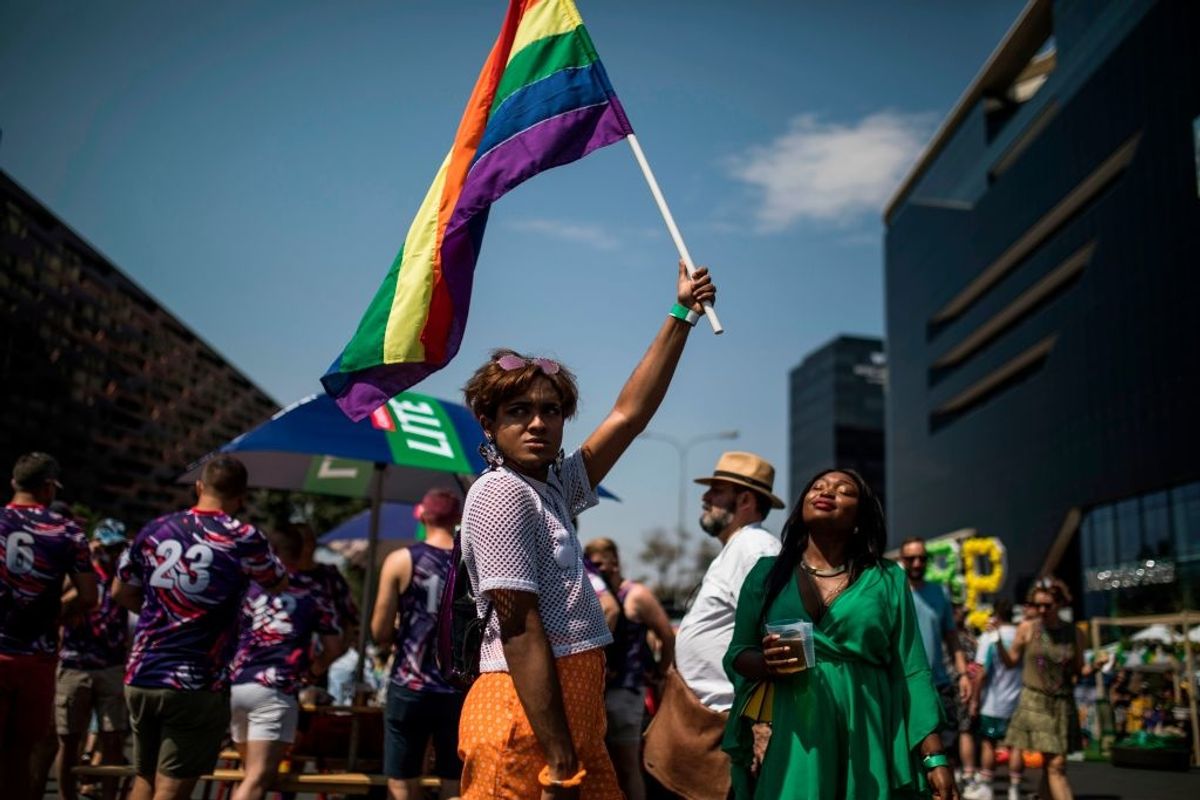
TOPSHOT - People take part in the Johannesburg Pride Parade on October 26, 2019 in Johannesburg, as it celebrates it's 30th anniversary this year.
Photo by GUILLEM SARTORIO/AFP via Getty Images
SEARCH

TOPSHOT - People take part in the Johannesburg Pride Parade on October 26, 2019 in Johannesburg, as it celebrates it's 30th anniversary this year.
South African President Cyril Ramaphosa has recently passed the Civil Union Amendment Bill which seeks to protect the rights of same-sex marriage.